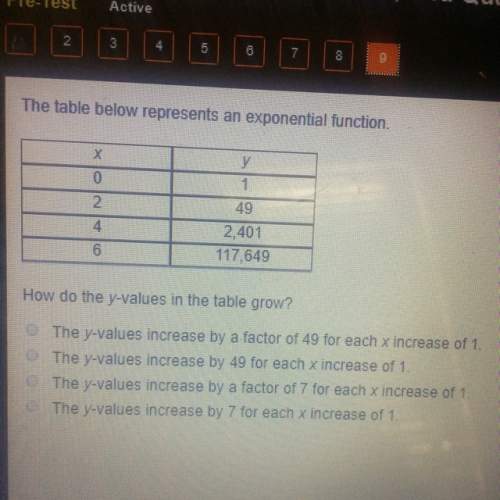
Carry ”by Linda Hogan
Instructions: Read carefully and answer all parts of each question. It is worth 24 points (2 points each for precision and grammar).
1. RL1,2 An inference is a logical conclusion based on clues in the text and on the reader's own experience. Reread lines 2-6 of the poem and infer what happened, citing evidence from the text to support your inference.
2. RL2 poets often use figurative language, or language that has meaning beyond the literal meaning of words, to convey underlying themes or messages. Identify the event described by the simile, a comparison using like or as, on line 12, and then explain the idea the simile suggests.
3. RL2 Personification, which gives human attributes or qualities to an object or idea, is another type of figurative language. Reread line 22 and explain why the line is an example of personification. From this personification, what can we infer about the subject?
4. RL1,5 Authors choose their words carefully to create a tone or mood. Authors can use images, descriptions, and rhythms to do this. In what two ways is water described? Cite examples of descriptive words or phrases for water and compare them. What effect does this have on the mood of the poem?
5. Discuss: What does the fate of the hawk reflect on nature, if at all? Cite specific evidence from the text to support your ideas.
6. Summarize: Review what is explicitly said on lines 1-14 and write a short summary (1-3 sentences) of what the speaker describes. How does the image created in these lines affect the mood or emotion of the poem?
7. Infer: Use clues from the text to infer what happened to the hawk. Why is this unexpected?
8. Analyze: Words and phrases that describe how things look, feel, sound, taste, or smell are called sensory details. Write down the sensory details on lines 15-23. How do these details help engage readers in the poem?
9. Interpret: Explain what lines 22-23 mean: "and water is never lonely, / contains so many". Support your interpretation with evidence from other lines.
10. Analyze: Review the supplication and promise of water at the end of the poem (lines 24-32). What does the water want? What does it offer?
11. Interpret: A symbol is something that represents or represents something beyond itself. Review the descriptions of the water in the poem. What does the water symbolize?
12. Cite the evidence: What theme about our connection to nature does this poem convey? Support your topic statement with evidence from the poem.

Answers: 3
Other questions on the subject: English

English, 21.06.2019 21:10, slugmilk1090
In 250-300 words, discuss jem’s character development in to kill a mockingbird. how does he grow and change? what are the major events that affect that change?
Answers: 1

English, 22.06.2019 01:10, hipposaresofluffy
Read the passage from animal farm. as clover looked down the hillside her eyes filled with tears. if she could have spoken her thoughts, it would have been to say that this was not what they had aimed at when they had set themselves years ago to work for the overthrow of the human race. these scenes of terror and slaughter were not what they had looked forward to on that night when old major first stirred them to rebellion. if she herself had had any picture of the future, it had been of a society of animals set free from hunger and the whip, all equal, each working according to his capacity, the strong protecting the weak, as she had protected the lost brood of ducklings with her foreleg on the night of major's speech. instead—she did not know why—they had come to a time when no one dared speak his mind, when fierce, growling dogs roamed everywhere, and when you had to watch your comrades torn to pieces after confessing to shocking crimes. there was no thought of rebellion or disobedience in her mind. she knew that, even as things were, they were far better off than they had been in the days of jones, and that before all else it was needful to prevent the return of the human beings. whatever happened she would remain faithful, work hard, carry out the orders that were given to her, and accept the leadership of napoleon. but still, it was not for this that she and all the other animals had hoped and toiled. it was not for this that they had built the windmill and faced the bullets of jones's gun. such were her thoughts, though she lacked the words to express them. what was most likely orwell’s purpose for writing this passage? to show that clover is more sensitive to violence than the others to remind readers of major's speech and the original rebellion to present napoleon as a cruel leader unworthy of the animals’ support to represent misled followers and their dashed hopes for better lives
Answers: 3

English, 22.06.2019 01:30, kevingilbert1210
When you wear your earbuds while working out, your sweat damages them and they die sooner
Answers: 1
Do you know the correct answer?
Carry ”by Linda Hogan
Instructions: Read carefully and answer all parts of each question. It is wor...
Questions in other subjects:

Mathematics, 07.11.2020 01:00

Chemistry, 07.11.2020 01:00

Social Studies, 07.11.2020 01:00


Mathematics, 07.11.2020 01:00


Mathematics, 07.11.2020 01:00

Social Studies, 07.11.2020 01:00

English, 07.11.2020 01:00

Mathematics, 07.11.2020 01:00







